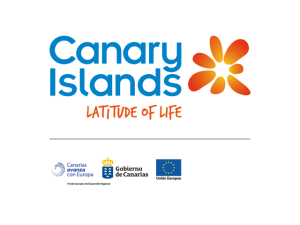Every day the Canary Islands are closer to the “new normal”. The whole Archipelago is ready to continue advancing in the Spanish COVID-19 de-escalation plan. The islands of Tenerife, Lanzarote, Gran Canaria, Fuerteventura and La Palma have now joined La Gomera, El Hierro and La Graciosa in Phase 2. This phase allowed for the safe reopening of Canaries’ beaches for sunbathers on Monday 25th May. As well as this, shopping centres and cultural spaces can now open their doors, with some limitations. As part of this second phase, restaurants and bars have been given some new, more relaxed guidelines to follow.
The eight islands are set to gradually restart activity. But, that’s not all. The Canaries’ major airports – Tenerife Sur, Lanzarote, Gran Canaria and Fuerteventura – have been reactivated for international flights and are expecting to open the ‘safe corridors’ in July.
Canary Islands Minister of Tourism, Industry and Commerce, Yaiza Castilla said “this is one of the best announcements since the reactivation of the entire sector which necessarily requires the recovery of the air connectivity. We depend on the airlines to reactivate their routes with our Islands and that will be only possible if we are part of a ‘safe corridor’ that will allow us to connect with our main tourist markets“.
Every aspect of travel is being recast in the Canary Islands as Spain gears up to receive tourists as early as July, according to Prime Minister Pedro Sánchez. On top of this, the Spanish government is planning on lifting the two-week COVID-19 quarantine requirement for overseas arrivals on July 1st, 2020.
Leading the way to safely reopen
The Canary Islands are undergoing extensive renovations through the Global Tourism Safety Lab to protect visitors from the coronavirus and ensure social distancing. Its priority is to ensure that its health and safety measures are applied to its tourists and its residents.
Cristina del Río Fresen, the Lab’s project manager, stresses that “we are going to make sure that everything we do is done at the highest level, that all is under control, from the taxi driver or the bus, to the hotel, the restaurant or the beach. But we need these same guarantees at the source markets“.
For its responsibility and innovation, the UN World Tourism Organisation (UNWTO) has selected the Canaries to test the world’s first safe flight with passengers carrying coronavirus-free health passports. The travellers of this pioneering flight, taking place this July, will be monitored by a secure healthy app launched by the Canarian company hi + Card.
The airlines are ready
According to Javier Gándara, the Airlines Association’ (ALA) president, “measures have been taken to mitigate the possibility of contagion on board as much as possible, so we are prepared to recover the activity“. Gándara assures that the air transport is the safest mode of transport due to “its air quality, which is renewed every two or three minutes. In addition, the HEPA filters, the ones on the planes, are the same used in hospitals“.
On that matter, Evandro Vianna, Iberia Express Chief Commercial Officer, points out that “the company is prepared to help with the recovery of the connectivity in the Canary Islands“. For its part, Ryanair hopes to restore 40% of its flights from July the 1st. Tenerife, Fuerteventura, Lanzarote and Gran Canaria would be amongst the first tourist destinations to receive holidaymakers.
The Canaries’ COVID-19 cases, amongst the lowest in Europe
The Canaries’ COVID-19 cases rate is amongst the lowest in Europe. Only 0.1% of the total population has been affected and its mortality rate, 6.8 death per 100.000 population, is far below European countries such as Germany (9.3), United Kingdom (49.9), Sweden (34) or Denmark (9.2).

